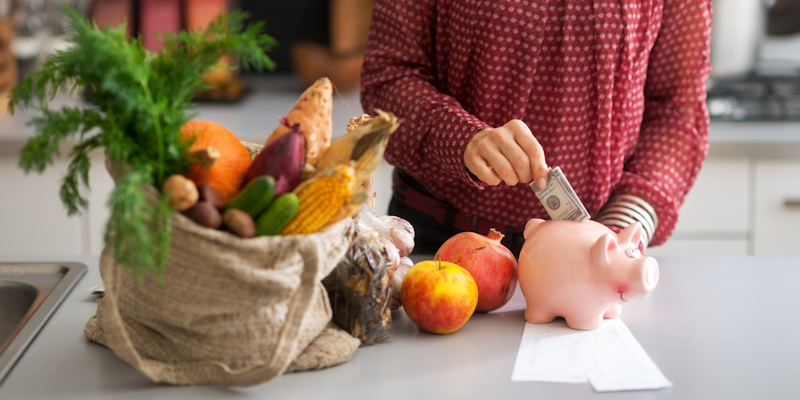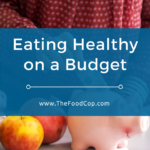Eating Healthy on a Budget
Consumers these days are paying more at the grocery store, the gas pump, and many other facets as well. The experts place the blame on many factors, including rising oil prices and the value of the dollar. In addition, natural disasters and unfortunate weather conditions have ruined many crops, therefore increasing food prices. As a result of these rising prices, many consumers are looking for ways to eat cheap without sacrificing the nutritious quality of their meals.
Following are some tips on how you can save money on your food budget while keeping your meals healthy at the same time!
- Eat more meals at home. Many restaurants and fast food establishments are offering great deals as a result of the economy in order keep, and even increase, their customer base. However, from a health standpoint, it may not always be in your best interest to take advantage of these specials. Be sure to read the nutrition label before making your purchase to determine if it’s really a bargain.
- Try generic brands. Generic brands are not only less expensive but are often the same exact item as the name brand – many grocery companies buy brand name products and simply put their own label on them. If you are not sure about the quality of the generic brand, compare the nutrition labels – be sure to check the nutrition information and the ingredients list.
- Purchase whole poultry, fruits, and veggies and cut them up yourself. Food items that come pre-washed and pre-sliced often have a higher price tag. Cutting and dicing may take you time but may be worth the extra savings.
- Shop at farmers markets. Farmers markets not only carry fresh produce, but breads, nuts, cheese, and many other healthy food items as well. The food prices at farmers markets are often lower than grocery stores due to lower overhead. Note that many vendors at farmers markets lower their prices close to closing time, but by shopping close to closing time, you also take the risk of vendors being out of your favorite items.
- Stock up on frozen food and canned food. Frozen and canned food is just as nutritious as fresh food but have a much longer shelf life, so there is less chance of the food going to waste, thereby saving you even more in your wallet.
- Drink more water. Cut back on sodas, energy drinks, and alcohol – these products not only cost more than water, but are also not as healthy. Need some added taste? Add some fresh lemons, strawberries, or cucumbers to your water for some healthy flavor!
- Save with coupons and sales. Coupons and sales are almost always a great way to save money. Most grocery stores have coupons available and advertise sales on their web sites. Remember that the best bargains are often on the lowest shelves. Don’t forget to join the e-mail list for your favorite stores, as many of them offer special e-mail savings just for their subscribers.
- Shop at discount stores. Several discount stores, including dollar stores, have been expanding their grocery sections, and some are even carrying fresh produce, meat, and poultry. Many discount stores have sales and accept coupons as well, giving you an even better savings!
- Buy in bulk. Bulk food is usually cheaper then packaged food and allows you to buy the amount you will most likely use so it doesn’t go to waste.
- Don’t buy junk food. Vending machines and the end caps in grocery stores often contain more junk food than healthy options. Brown bag your snacks and meals for work, school, or wherever you might be going that day.
Plus, don’t forget to sign up for my FREE online course – Healthy Cooking on a Budget – and learn how healthy, inexpensive meals can be prepared at home!



Pingback:Time to Get Cooking! | The Food Cop